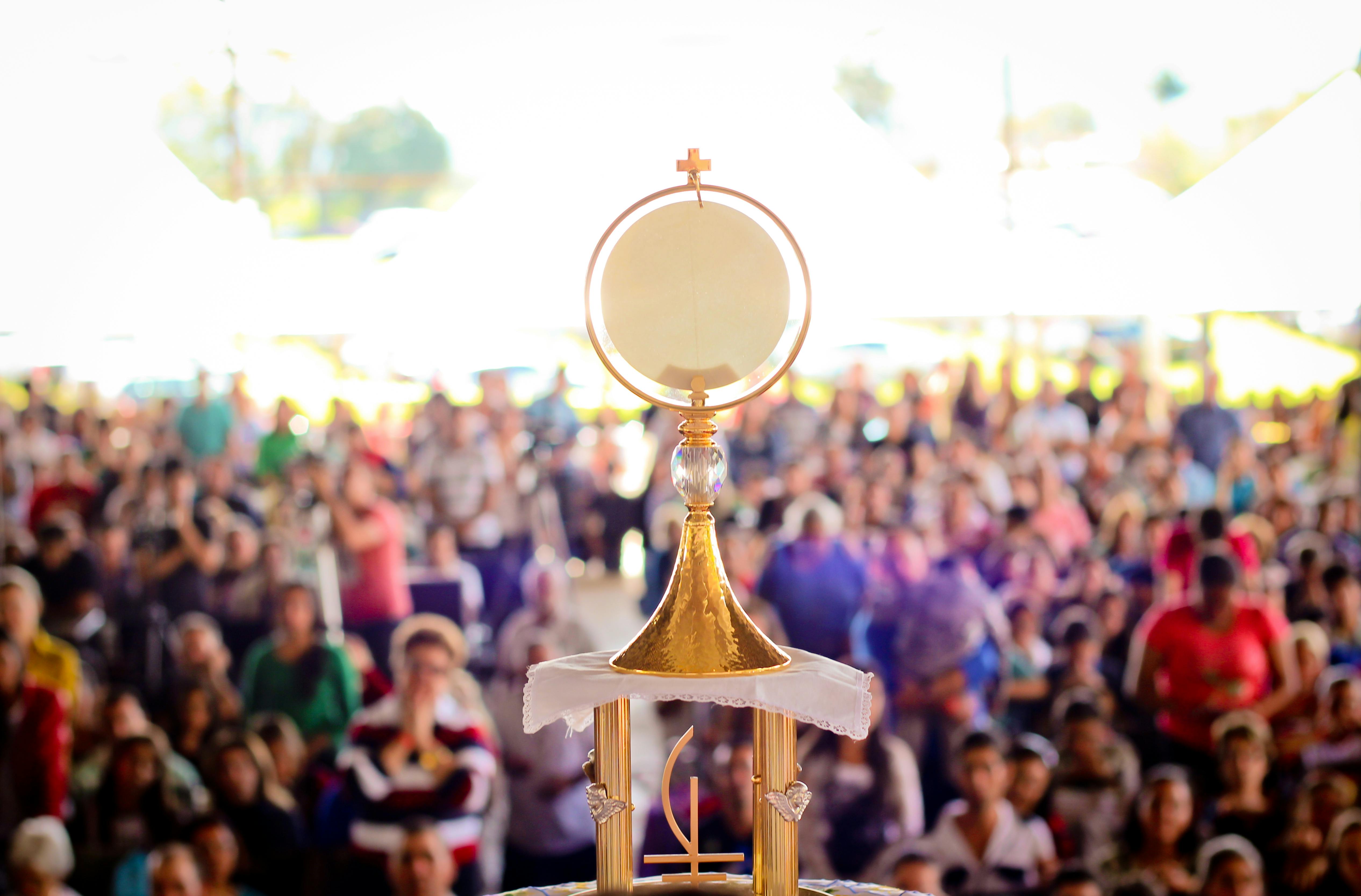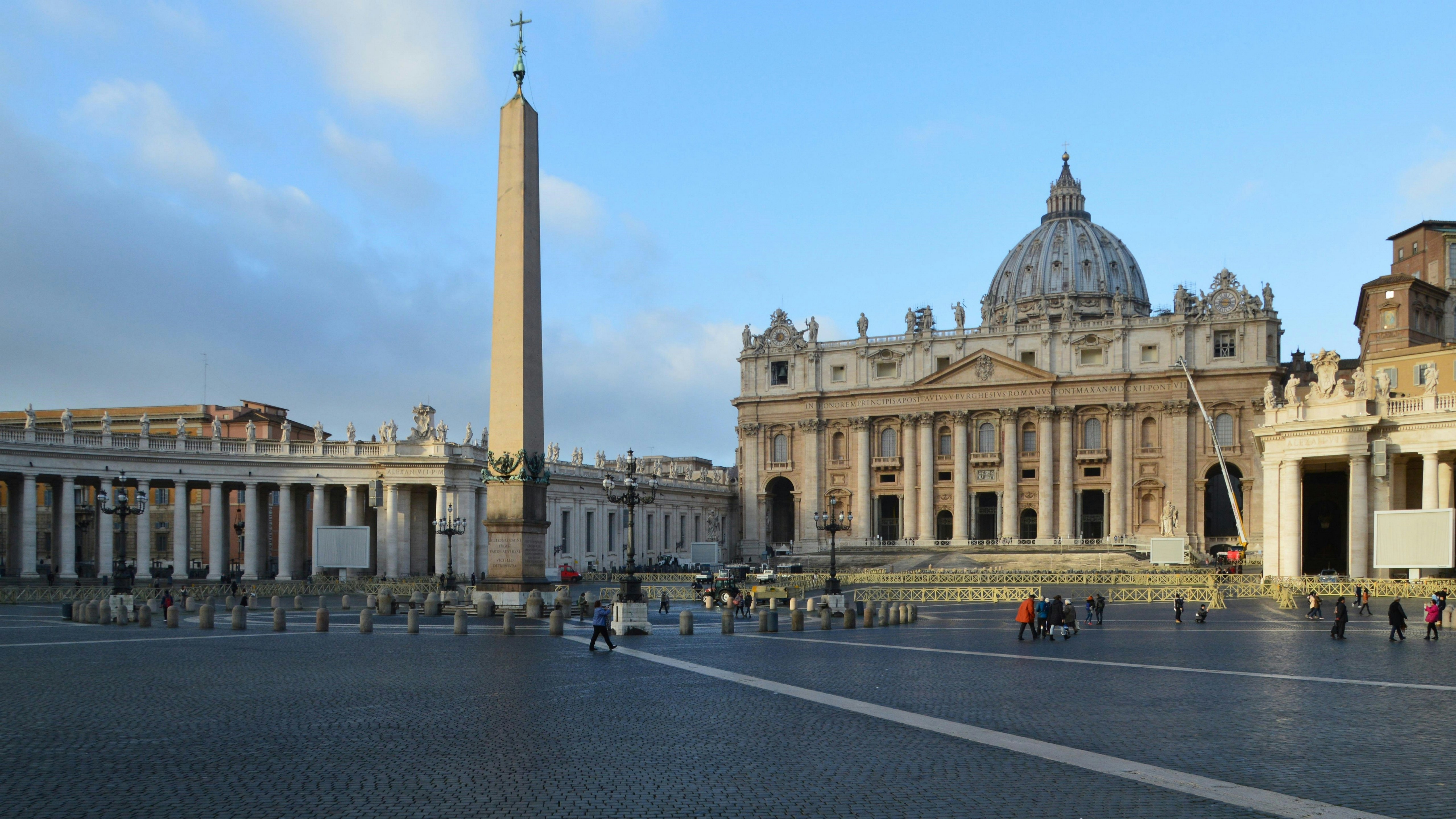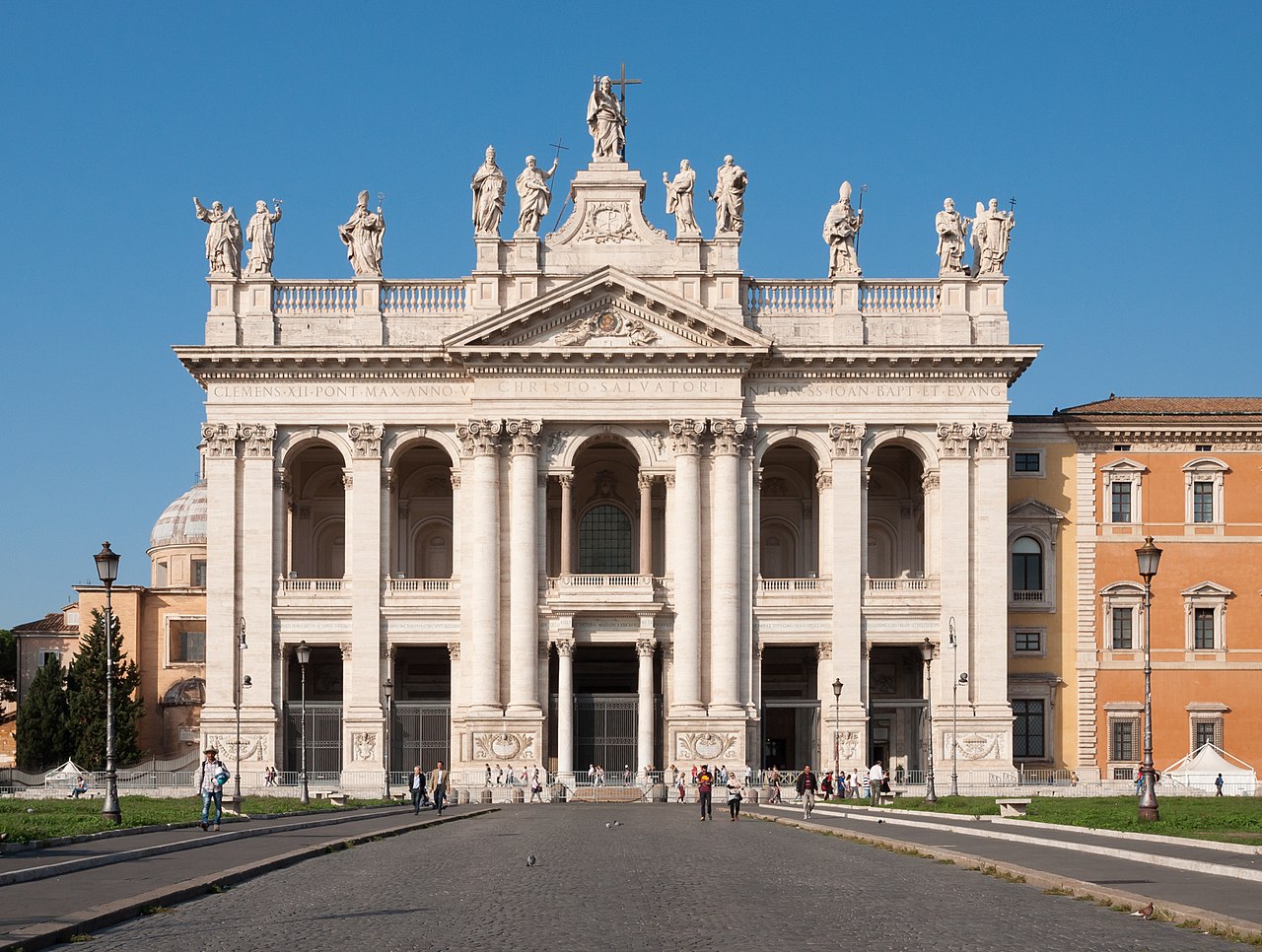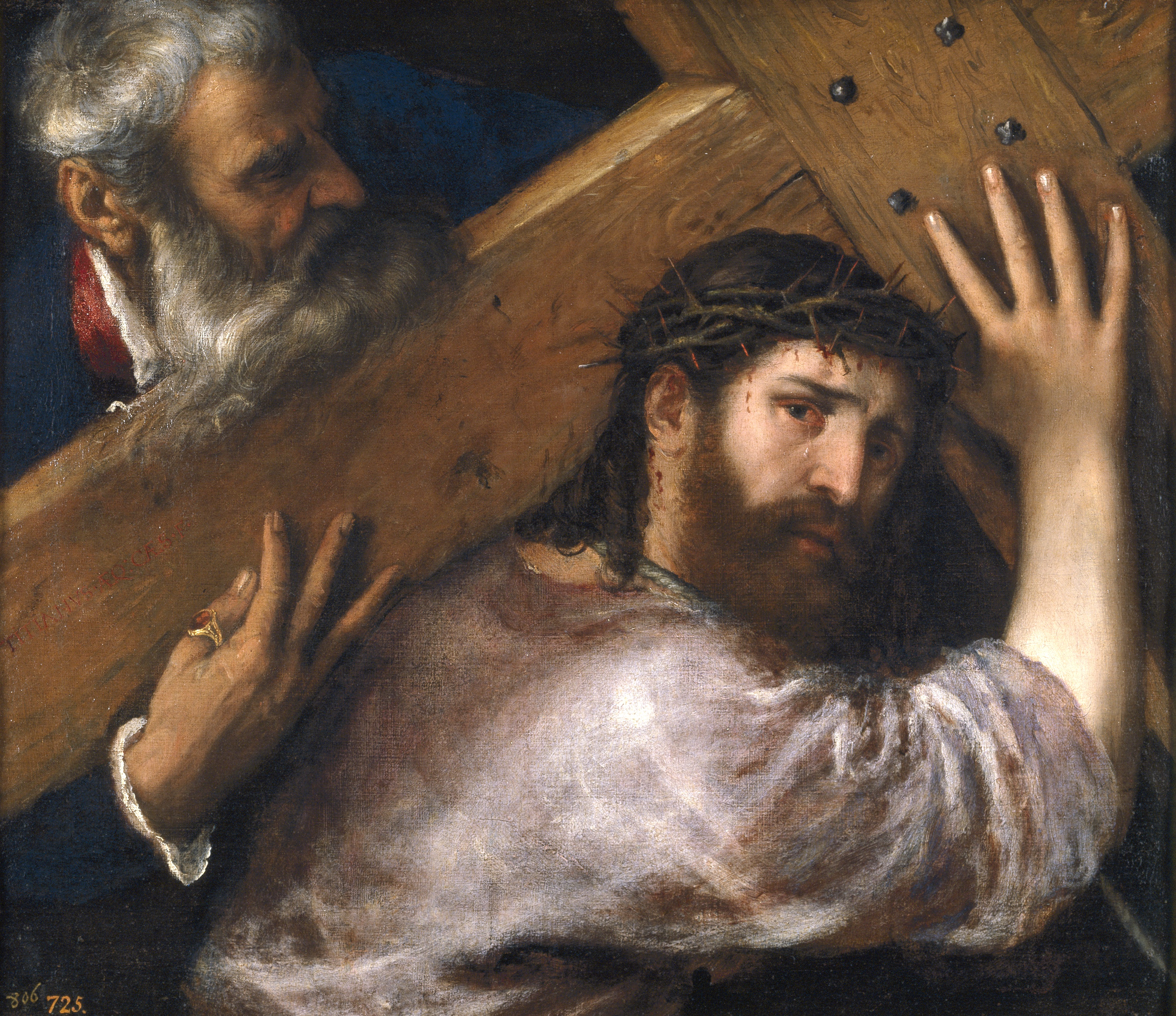** This reflection was reposted from Diocesan Archives. **
As my family walked down the aisle to receive Holy Communion, I noticed my three-year-old approach the Eucharistic Minister with hands folded. When he reached the front, he looked up at her with pleading eyes, hoping she would give him the sacred host. Instead, she placed her hand on top of his head, giving him a quick blessing. He turned away and began whining, then crying. He wanted to receive Jesus so badly! And while I know full well that he does not have full understanding of the Body of Christ just yet, I was touched by his yearning.
Going to Mass and receiving Communion is one of the most powerful ways of praying, but what does it mean to “pray always” as Jesus talks about in today’s Gospel?
Perhaps beginning with a morning offering to give our whole day to Christ. Perhaps repeating the Jesus prayer over and over. Perhaps attending daily Mass. Perhaps fingering a rosary bracelet throughout the day. Perhaps offering up our daily chores, work, care of children, etc. to God for some intention. There are so many ways to pray!
But I question whether or not Jesus really meant by “pray always” to pray at every single minute of the day. I mean, He knows more than anyone how human we are. He knows we must attend to our tasks and that our hearts are not lifted up to Him 24/7. He knows that we often forget our Creator.
Perhaps He meant rather, that we should always turn to Him in prayer, no matter what we are going through. Pray when you are happy. Pray when you are sad. Pray in praise. Pray in Thanksgiving. Pray when you are in need. Pray when others are in need. Pray for the salvation of your soul and the souls of others. Whatever the situation may be, turn to God in prayer.
Our souls thirst for God and he longs for us to come to Him. And whether our prayers be consistent, persistent, or scattered here and there, may we always remember to pray.
Mientras mi familia caminaba por el pasillo central para recibir la Sagrada Comunión, noté que mi hijo de tres años se acercaba a la Ministra de la Eucaristía con las manos juntas. Cuando llegó al frente, la miró con ojos suplicantes, esperando que le diera la hostia sagrada. Pero solo colocó su mano sobre su cabeza, dándole una breve bendición. Él se dio la vuelta y comenzó a chillar y luego a llorar. ¡Quería recibir a Jesús con tanta desesperación! Y aunque sé muy bien que todavía no tiene una comprensión completa del Cuerpo de Cristo, me conmovió su anhelo.
Ir a Misa y recibir la Comunión es una de las formas más poderosas de orar, pero ¿qué significa “orar siempre” como habla Jesús en el Evangelio de hoy?
Tal vez comenzar con una ofrenda matutina para entregar todo el día a Cristo. Tal vez repetir el nombre de Jesús con reverencia una y otra vez. Tal vez asistir a la Misa diaria. Tal vez rezar con un brazalete de rosario durante todo el día. Tal vez ofrecer las tareas diarias, trabajo, cuidado de los niños, etc. a Dios por alguna intención. ¡Hay tantas formas de orar!
Pero me pregunto si Jesús realmente quiso decir “orar cada minuto del día” cuando dijo “orar siempre” . Es decir, Él sabe mejor que nadie lo humanos que somos. Sabe que tenemos que tender a las tareas diarias y que nuestros corazones no están elevados hacia Él las 24 horas del día. Sabe que a menudo nos olvidamos de nuestro Creador.
Quizás quiso decir más bien que siempre debemos recurrir a Él en oración, sin importar lo que estemos pasando. Ora cuando estés feliz. Ora cuando estés triste. Ora en alabanza. Ora en acción de gracias. Ora cuando tienes alguna necesidad. Ora cuando otros tienen necesidad. Ora por la salvación de tu alma y las almas de los demás. Sea cual sea la situación, recurre a Dios en oración.
Nuestras almas tienen sed de Dios y Él anhela que acudamos a Él. Y ya sea que nuestras oraciones sean constantes, persistentes o solo de vez en cuando, que siempre recordemos a orar.
 Tami Urcia grew up in Western Michigan, a middle child in a large Catholic family. She spent early young adulthood as a missionary in Mexico, studying theology and philosophy, then worked and traveled extensively before finishing her Bachelor’s Degree in Western Kentucky. She loves tackling projects, finding fun ways to keep her little ones occupied, quiet conversation with the hubby and finding unique ways to love. She works full time at Diocesan, is a guest blogger on CatholicMom.com and BlessedIsShe.net, and has been doing Spanish translations on the side for over 20 years.
Tami Urcia grew up in Western Michigan, a middle child in a large Catholic family. She spent early young adulthood as a missionary in Mexico, studying theology and philosophy, then worked and traveled extensively before finishing her Bachelor’s Degree in Western Kentucky. She loves tackling projects, finding fun ways to keep her little ones occupied, quiet conversation with the hubby and finding unique ways to love. She works full time at Diocesan, is a guest blogger on CatholicMom.com and BlessedIsShe.net, and has been doing Spanish translations on the side for over 20 years.
Feature Image Credit: Ben White, unsplash.com/photos/woman-praying-beside-tree-ReEqHw2GyeI



 Kate Taliaferro is an Air Force wife and mother. She is blessed to be able to homeschool, bake bread and fold endless piles of laundry. When not planning a school day, writing a blog post or cooking pasta, Kate can be found curled up with a book or working with some kind of fiber craft. Kate blogs at
Kate Taliaferro is an Air Force wife and mother. She is blessed to be able to homeschool, bake bread and fold endless piles of laundry. When not planning a school day, writing a blog post or cooking pasta, Kate can be found curled up with a book or working with some kind of fiber craft. Kate blogs at 


 Emily Jaminet is a Catholic author, speaker, radio personality, wife, and mother of seven children. She earned a bachelor’s degree in mental health and human services from the Franciscan University of Steubenville. She is the co-founder of
Emily Jaminet is a Catholic author, speaker, radio personality, wife, and mother of seven children. She earned a bachelor’s degree in mental health and human services from the Franciscan University of Steubenville. She is the co-founder of 
 David Dashiell is a freelance author and editor in the Nashville, Tennessee area. He has three children, a degree in theology, and enjoys writing about philosophy, theology, culture, music, and comedy. You can find his personal blog, Serious Daydreams, on
David Dashiell is a freelance author and editor in the Nashville, Tennessee area. He has three children, a degree in theology, and enjoys writing about philosophy, theology, culture, music, and comedy. You can find his personal blog, Serious Daydreams, on 



 Allison Gingras (
Allison Gingras (



